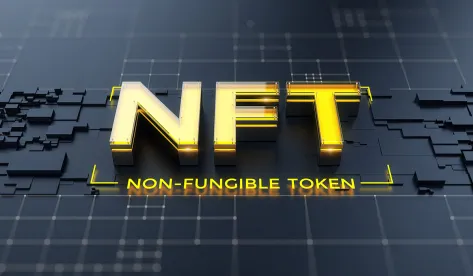The heavily publicized announcement by New York federal prosecutors of the first-ever charges for insider trading in digital assets — non-fungible tokens, or “NFTs” in particular — is a significant but somewhat confusing development for the crypto community and beyond. There is nothing novel about applying well-established law to the abuse of confidential, insider information to the world of digital assets, but this case and other recent actions and comments underscore the government’s broadening scrutiny of digital asset trading activities and suggests a more aggressive era of enforcement and potential prosecution has begun.
The U.S. Attorney’s Office for the Southern District of New York, in United States v. Nathaniel Chastain, charged a product manager at OpenSea — the largest online marketplace for the purchase and sale of NFTs — for misappropriating his employer’s confidential business information for his personal profit. The defendant allegedly used confidential information about NFTs that the marketplace was preparing to feature, buying the selected NFTs before the public announcement, and selling them at a much higher price once the announcement was made.
Despite all the fanfare around the indictment — the government touted the charges in a press release as the “first ever digital asset trading scheme” — the case is a rather routine application of the broadly worded wire fraud statute used to target insider trading outside the scope of federal securities laws. And although the defendant used his employer’s confidential business information to trade in NFTs, a kind of digital asset that has garnered increased public attention in the past 18 months, the crime would be the same if he had improperly used the confidential information to profit from the sale of a more traditional item or, indeed, from any misuse of material non-public information in violation of his obligations to his employer.
An earlier federal appeals court case made clear an employee’s “scheme to misappropriate material nonpublic information” from an employer “in breach of the employee’s duty of confidentiality” meets the requirements of the wire fraud statute, so long as it involves the use of wire communications. Also, nothing in the wire fraud statute requires a connection with securities. So, based on this earlier case, this former NFT marketplace employee could be liable for “insider trading” even if the NFTs he bought and sold were not securities — although some NFTs may be securities depending on a number of factors, no such allegation was made in this case.
What is more enlightening about this first NFT insider trading case and other recent digital asset developments is that they reflect (1) the government’s increasing focus on investigating and prosecuting bad actors in the digital asset space; (2) the government’s increasing expertise and experience in investigating fraud and other criminal activity involving digital assets; (3) a growing number of comments from representatives across multiple government agencies about significant anti-money laundering, sanctions and other compliance deficiencies in the world of digital assets; and, perhaps most importantly, (4) the increasing likelihood of prosecutions and government enforcement activity, and the attendant criminal and civil exposure of market participants, as more resources are committed to this space.
The latter point is particularly significant in that it portends likely additional legal exposure and calls for additional regulation of digital asset platforms. In the NFT insider trading case, for example, the indictment alleges that the defendant used “anonymous OpenSea accounts” to purchase the NFTs and funneled funds he received from selling them through “multiple anonymous Ethereum accounts” in order to conceal his involvement in the transactions. This conduct earned the defendant a money laundering charge, on top of the wire fraud charge he faces for misappropriating the confidential information.
This point was similarly addressed in another NFT-related criminal case brought by New York federal prosecutors in March when the government charged two individuals with a scheme to defraud purchasers of NFTs advertised as “Frosties.” The alleged scheme in United States v. Ethan Nguyen and Andre Llacuna was what is commonly referred to as a “rug pull,” where the creator of an NFT or gaming project solicits investments and then abruptly abandons a project and fraudulently retains the project investors’ funds. As alleged in the Frosties case, the defendants promised Frosties NFT purchasers that they would be eligible for a variety of rewards, but instead abruptly abandoned the Frosties NFT project within hours after selling out of Frosties NFTs, deactivated the Frosties website, and transferred approximately $1.1 million in cryptocurrency proceeds from the scheme to various anonymous cryptocurrency wallets under their control. Significantly, the defendants in that case, as in the more recent insider trading case, used multiple transactions to obfuscate the original source of funds. And, as in the insider trading case, the defendants in the Frosties case were charged with money laundering along with wire fraud.
Takeaways
Here are three key takeaways from these two recent NFT-related fraud cases:
-
There is growing interest by criminal and civil authorities in investigating and prosecuting fraud and other criminal activity in the digital asset space. As the U.S. attorney for the Southern District of New York noted in announcing the Frosties NFT charges, his office has taken note that while “NFTs have been around for several years . . . recently mainstream interest has skyrocketed” and that “[w]here there is money to be made, fraudsters will look for ways to steal it.” Likewise, in a press release announcing the Chastain insider trading charge, he commented that “NFTs might be new, but this type of criminal scheme is not” and that the “charges demonstrate the commitment of this Office to stamping out insider trading – whether it occurs on the stock market or the blockchain.” We can expect to see more government enforcement activity in this area in the coming months and years. At the very least, NFT marketplaces and other participants in the market should be reviewing their policies and procedures with respect to employee misuse of confidential information.
-
The government is becoming increasingly adept and knowledgeable in investigating criminal activity in the digital asset and cryptocurrency spaces. Federal law enforcement agencies now have dedicated groups trained to investigate and prosecute crypto-related fraud. The Chastain insider trading case was investigated by the FBI and the National Cryptocurrency Enforcement Team — a unit within the Department of Justice directed to “identify, investigate, support and pursue the department’s cases involving the criminal use of digital assets.” The Frosties fraud was investigated by Homeland Security Investigations (HSI), the IRS Criminal Investigations Unit, and the United States Postal Inspection Service (USPIS). Both investigations were complex and required the investigators to trace the identities of the defendants through a web of social media, cryptocurrency, digital assets, and other more traditional accounts.
-
Finally, and perhaps most significantly, the charges in these NFT-related cases may be indicative of significant compliance weaknesses and potential gaps in the anti-money laundering and sanctions compliance efforts of various digital asset trading platforms. That the defendants in both cases were able to use “anonymous accounts” on these platforms to perpetrate the alleged schemes and to launder the proceeds of those schemes is likely to be a focus of increased government regulation and enforcement as federal laws addressing both money laundering and sanctions apply to the marketplaces and their participants.
Recommendations
In addition to addressing employee use of confidential corporate information, companies engaged in the cryptocurrency and digital asset activities would do well to take heed of this increased enforcement activity and conduct a compliance review to ensure that the platforms have in place the necessary safeguards to detect and prevent fraud, money laundering and other criminal activities as well monitor customer complaints and address disclosure and pricing practices that could be deemed unfair, deceptive or abusive. Inadequate compliance measures are more likely to result in government enforcement activity or civil liability, with the cost of remediation and fines imposing significant financial burdens on these businesses.




 />i
/>i
